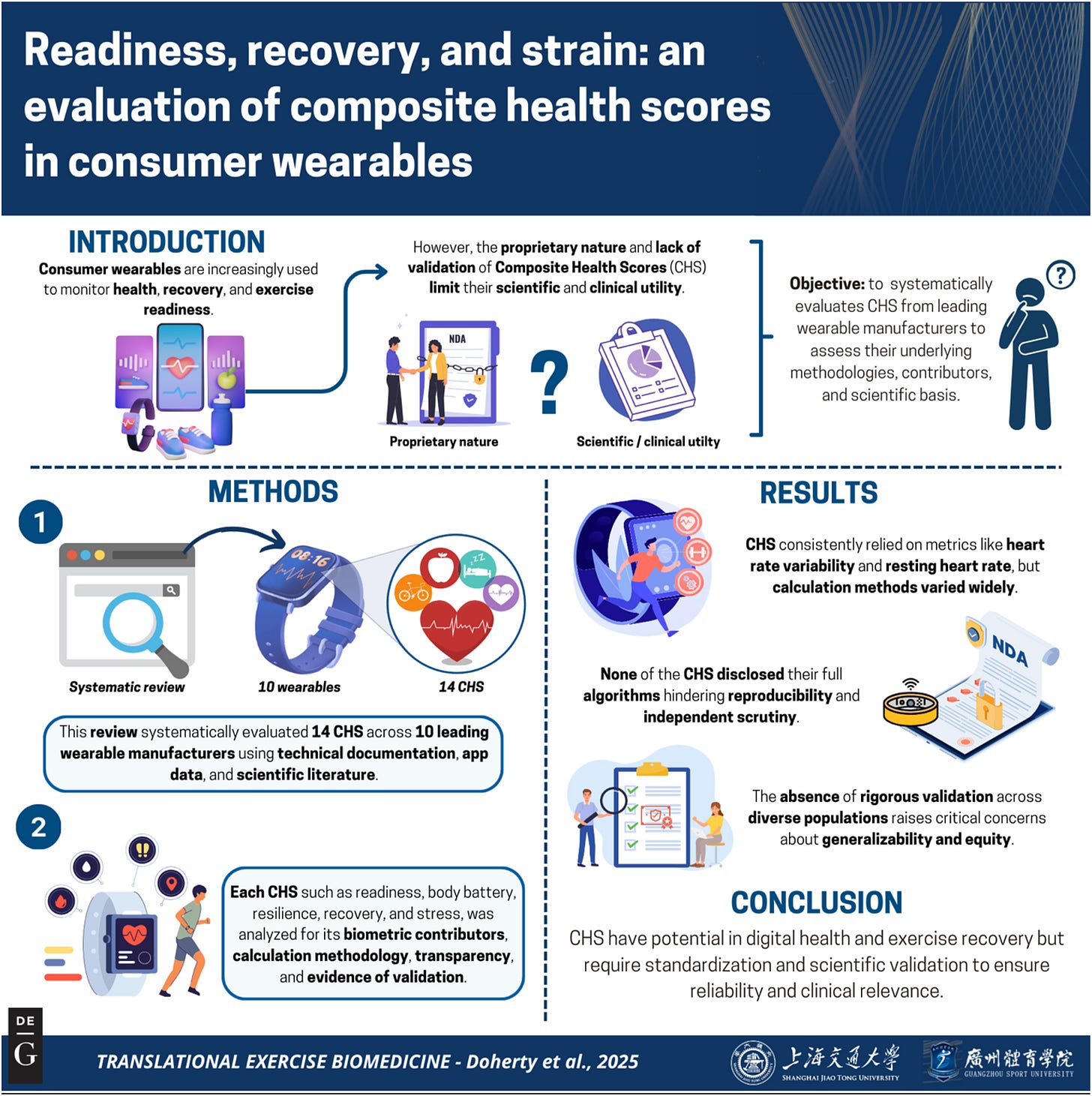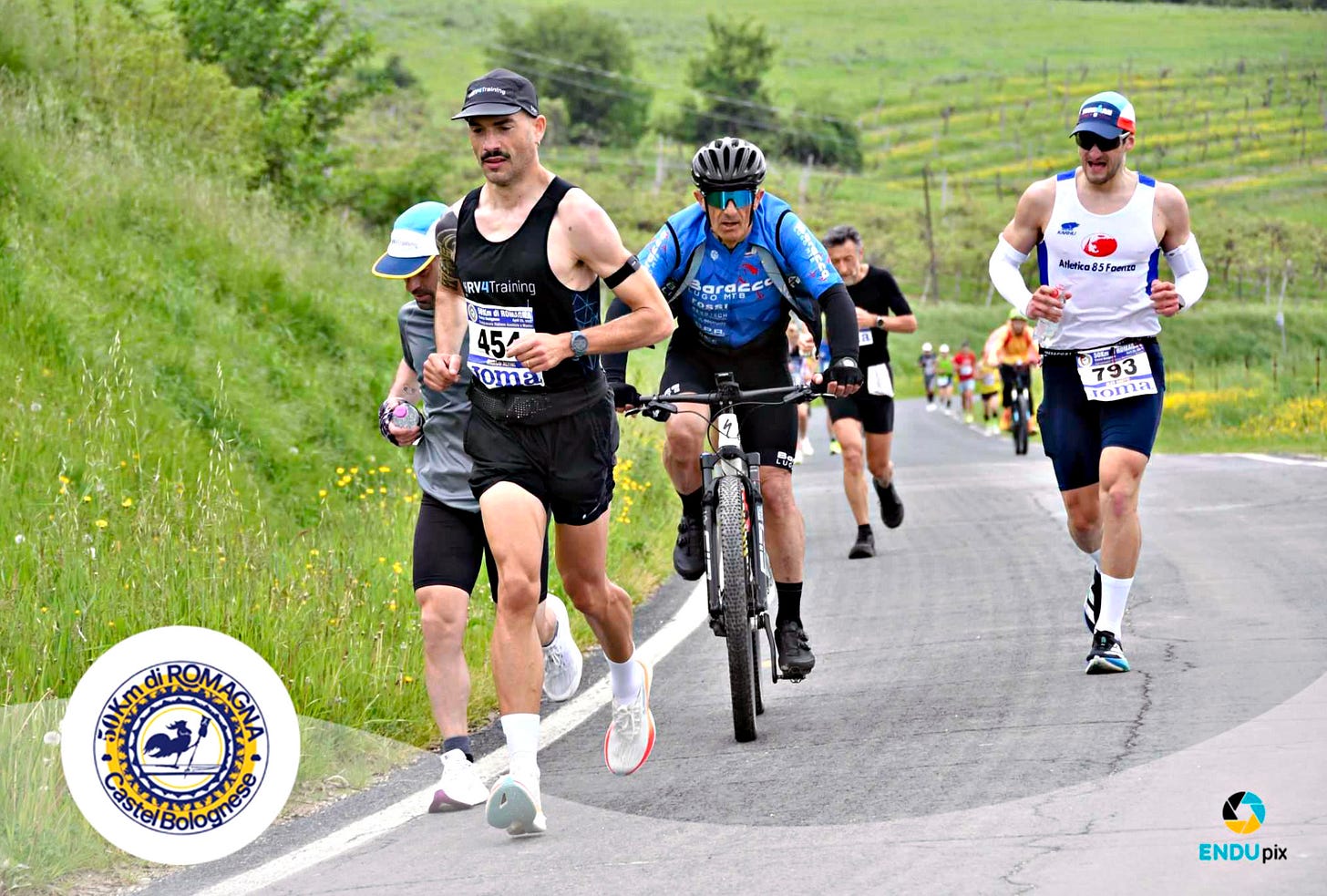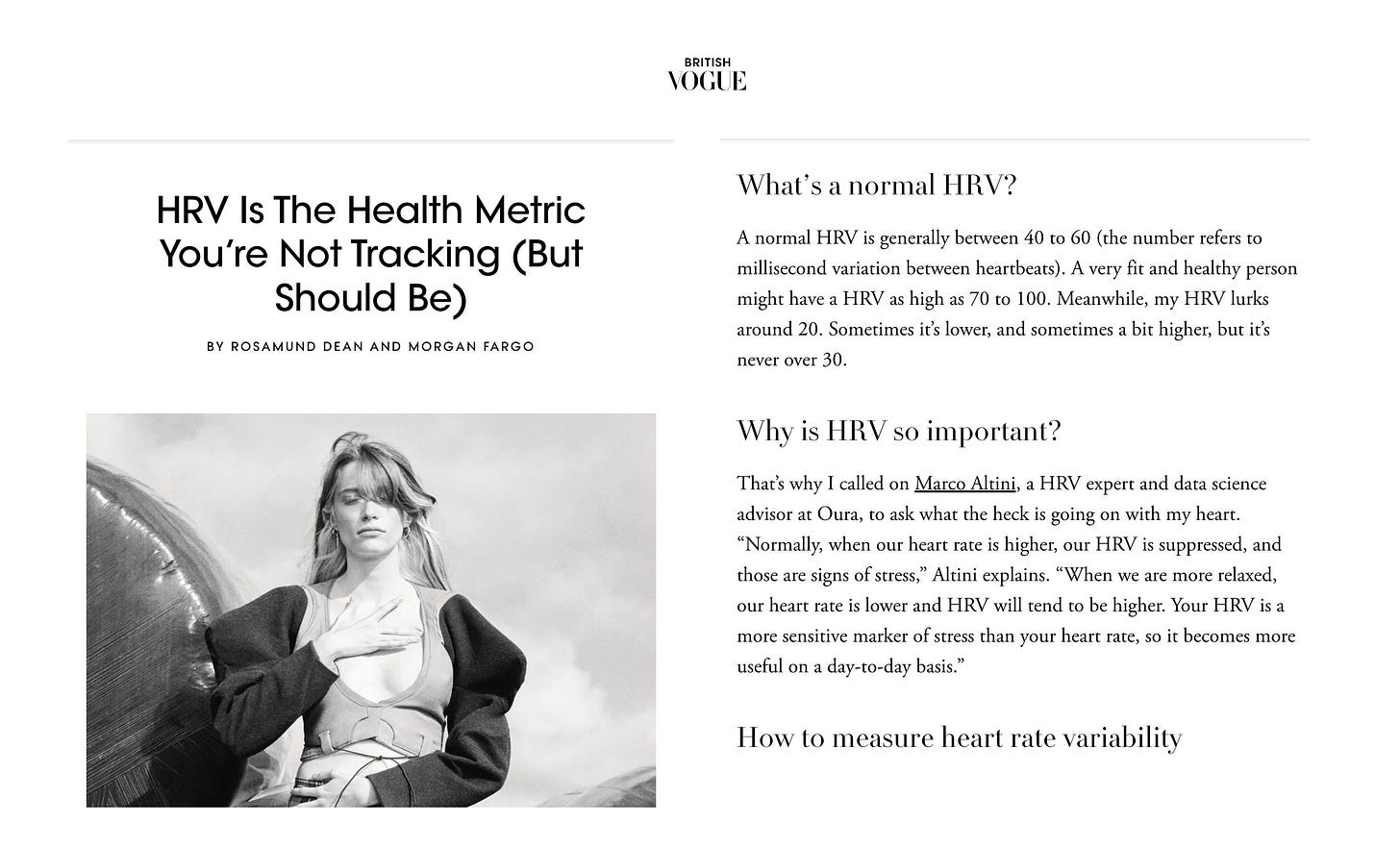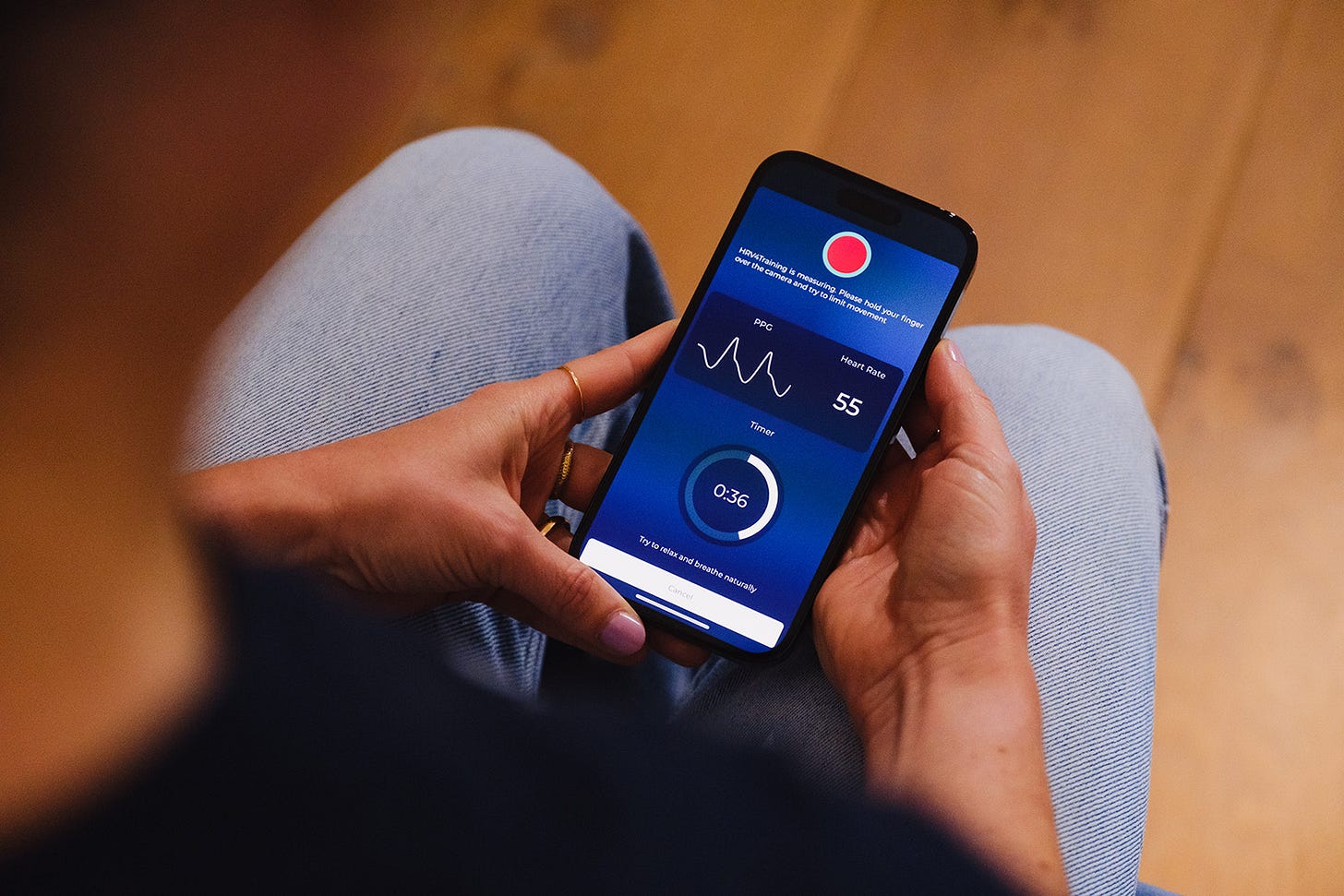Recent articles and updates [April 2025]
Heart rate variability (HRV), endurance coaching, training talk, wearables, entrepreneurship, and some ramblings.
Hi there 👋
I hope all is well.
Here’s a new recap of articles, research, and updates from the past month — including a deep dive into lactate testing and how I’m using it during training, thoughts on HRV protocols and tapering, and my race report from the 50 km di Romagna. You’ll also find links to recent publications and interviews, as well as a few reflections on nutrition, wearable tech, and more.
I hope you’ll find the articles useful and I would like to take the opportunity to thank you for your support.
Please feel free to comment below or in the articles should you have any questions, and I will follow up soon.
Take care!

Heart rate variability (HRV) 🫀
Heart Rate Variability (HRV) and Tapering. A common misconception is that HRV should increase on race week, as we reduce training load (taper). In reality, an ideal response is often in the opposite direction. Learn more here.
Not All HRV Data is Created Equal. I recently discussed the importance of the orthostatic stressor when measuring HRV (here). This concept is central to why we strongly recommend taking HRV measurements in the morning rather than relying on nighttime data. While the blog covered the science behind this protocol, it always helps to get a bit more concrete and look at a case study, which is what you’ll find here.
HRV Measurement Protocol. Over the last weekend, I was putting together a short document for our athletes at
, covering my recommended protocol for HRV measurement. Here is a short TL;DR.

Research 📝
Wearable technology. I have been collaborating with Dr. Cailbhe Doherty at the Insight SFI Research Centre for Data Analytics at University College Dublin on two articles related to wearable technology. The first one is all about composite (or, as I call them, “made-up”) scores. Composite scores from wearables aim to simplify complex data for users, but their lack of transparency, validation across populations, and standardized methods limits their reliability and clinical relevance. We need open methodologies and evidence-based best practices more than black-box algorithms, if you ask me. Full text linked here.

Training Talk 🏃🏻♂️
50 km di Romagna: Training, Nutrition and Race Report. I had a good day at the 50 km di Romagna, one of my favorite races, closing with a 10-minute personal best on a tough course. Very happy with the gamble I took back in December, taking a step back and giving myself time to work on a big limiter (fat oxidation) through periodized nutrition, so that I could (potentially) improve my ability to perform in ultra-endurance events. It turns out that it worked well, and performance went beyond my expectations. 3h 47’ for my race, about 28-30 grams of carbs/hour (110 grams in total), racing near my limits and feeling strong all the way. No cramping, no nausea, no fading. All the details, here.

CoachCorner ⏱️
Understanding Lactate: A Practical Guide For Endurance Training. During my mini-taper before the 50 km di Romagna, I took the opportunity to do a little lactate testing, a topic I covered in broader terms in this blog. In particular, I briefly look at the physiology behind lactate and then explore how we can use lactate testing in a way that's practical and nuanced. I hope you’ll find it useful.
I also wanted to thank everyone who applied and joined my endurance coaching program. My roster is now full, and I look forward to working together in the coming years.
Podcasts and Interviews🎙️
PA Chalk Up, Marco Altini, HRV Specialist #80. From Manny’s show notes:
Dr. Marco Altini is a data scientist, entrepreneur, and the creator of HRV4Training — an app used by athletes and coaches around the world to make smarter training decisions using heart rate variability and other physiological data. With a PhD in data science and a background in machine learning and wearable tech, Marco breaks down the science behind recovery, performance, and why your resting heart rate might be more important than your bench press. Whether you're a coach, athlete, or just a nerd for numbers — this one's for you.
Vogue. You can find a few quotes from yours truly in Vogue this month. In the article, we discuss what HRV is, emphasizing the significance of work-related and chronic stress, and highlighting the importance of not panicking over a relatively low absolute HRV value. It’s crucial to understand that HRV is influenced by various factors and a low absolute value doesn't necessarily indicate a problem. It’s more important to focus on trends and individual patterns over time so that we can make meaningful adjustments in our daily lives, better manage stress and improve our health (and performance). Thank you Rosamund for the interview, and you can find the full article, here.
Ramblings and Rants 🤌
Yet another study showing the benefits of adjusting training based on individual responses - something we can capture fairly well with a measurement of our resting HRV in the morning. Thank you Paul and Nick for the kind words.
A paper looking at sleep deprivation and its impact on autonomic activity, showing consistent data with what I have covered in my articles above, i.e. higher sensitivity of HRV with respect to heart rate, and also how HRV data collected while supine / lying down, does not capture important stressors.
HRV and various stressors: caloric deficit, traveling, sickness, a training camp, and more.
What you eat during exercise is not the same as what your body can use. In particular, a recent study showed how eating 60 vs 90 grams of carbs per hour resulted in the same rate of utilization.
That’s a wrap for this month. Thank you for reading!
How to Show Your Support
No paywalls here. All my content is and will remain free.
As a HRV4Training user, the best way to help is to sign up for HRV4Training Pro.
Thank you for supporting my work.
Coaching
If you are interested in working with me, please learn more here, and join the waiting list by filling in the athlete intake form, here.
Recent Updates:
Marco holds a PhD cum laude in applied machine learning, a M.Sc. cum laude in computer science engineering, and a M.Sc. cum laude in human movement sciences and high-performance coaching. He is a certified ultrarunning coach.
Marco has published more than 50 papers and patents at the intersection between physiology, health, technology, and human performance.
He is co-founder of HRV4Training, advisor at Oura, guest lecturer at VU Amsterdam, and editor for IEEE Pervasive Computing Magazine. He loves running.
Social:







